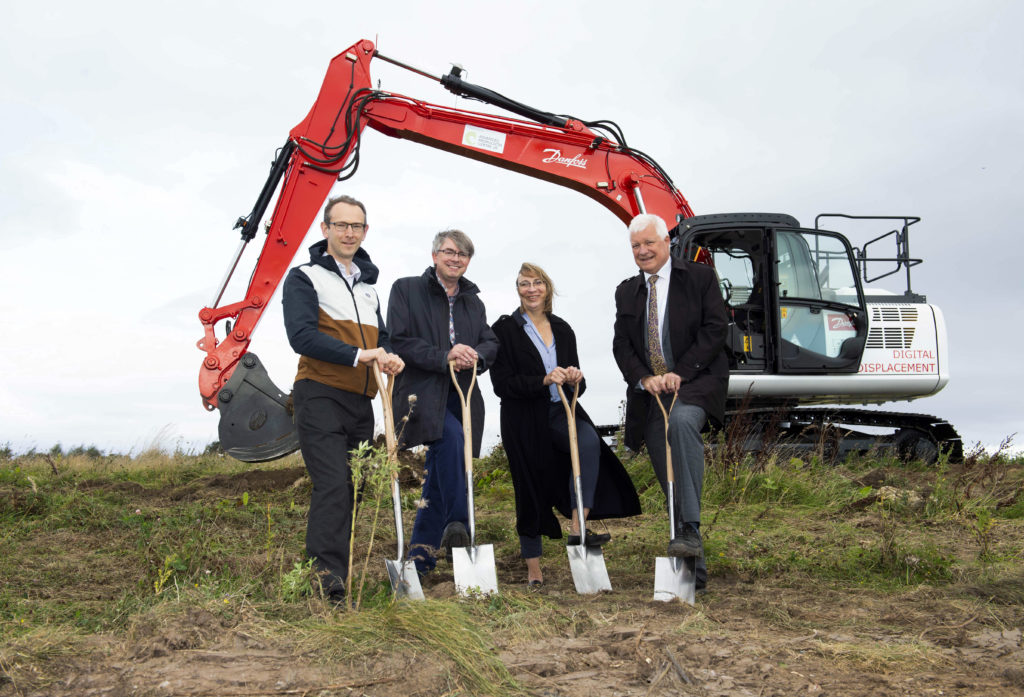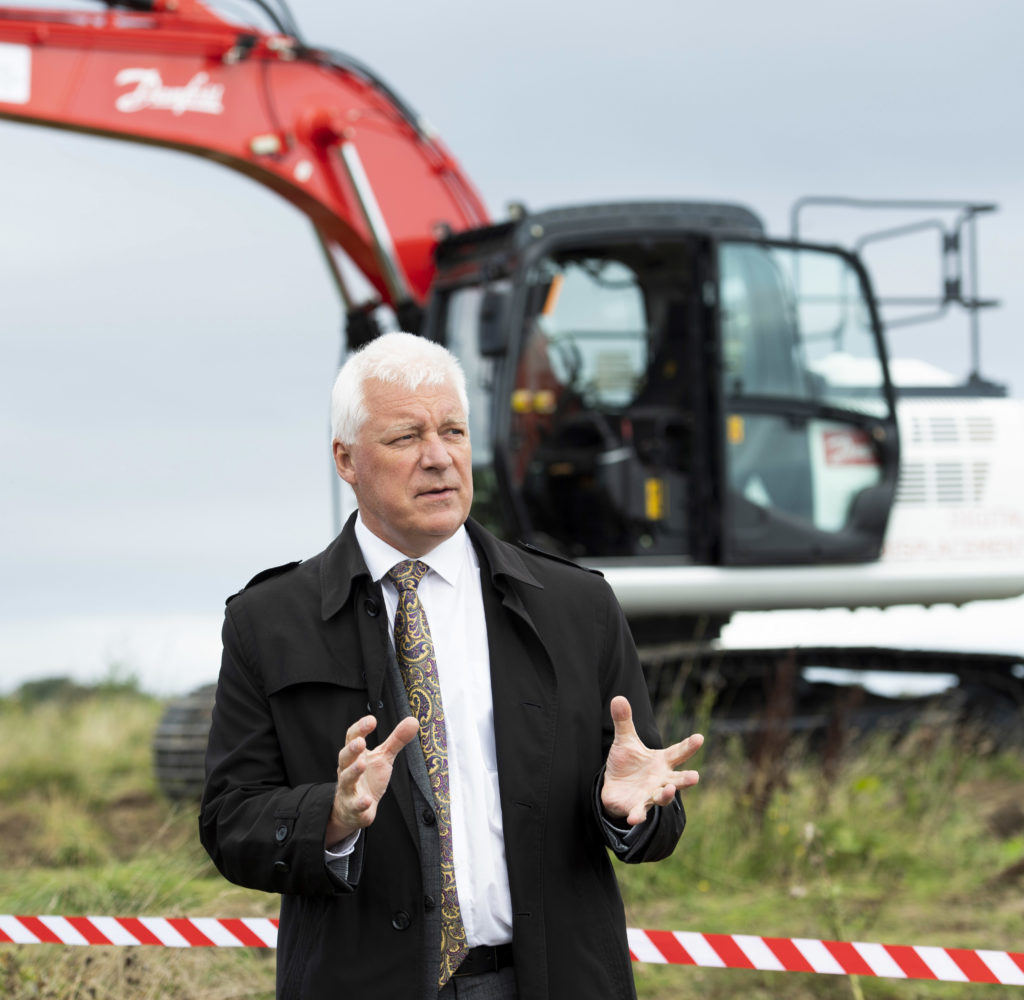Power where it’s needed: engineering a more efficient solution for off-highway vehicle hydraulics
For off-highway vehicles, such as excavators, wheel loaders and forklift trucks, moving around the work site is only part of the challenge. Much of their energy is consumed in lifting, carrying or digging, for which the technology can often be comparatively old-fashioned and inefficient.
In 2018, the Advanced Propulsion Centre (APC) awarded a £10.9 million grant to the DDISPLACE project, which set out to address these challenges with a fundamental rethink on hydraulic system design. It was led by Edinburgh-based technology developer Artemis Intelligent Power, working in collaboration with Danish-American multinational Danfoss Power Solutions and hydraulic system specialist Robbie Fluid Engineering.
In place of a mechanically governed axial pump, the DDISPLACE concept uses a radial configuration, with the pistons actuated by computer-controlled valves. The consortium believed this could improve the efficiency of the system by up to 50 per cent, dramatically reducing emissions and energy consumption.
Furthermore, it could play a key role in enabling electrification of heavy commercial vehicles. Danfoss has also developed an electric powertrain as part of a second APC-backed project, and the company estimates that the two technologies combined could reduce the lifetime CO2 emissions of the global excavator fleet by 80 Megatonnes (Mt) by 2030. That’s roughly the same as the entire annual CO2 emissions of Denmark and Scotland combined.
The technology behind the DDISPLACE project was originally developed by Artemis Intelligent Power. Shortly after the beginning of the project, Danfoss began its acquisition of the Edinburgh company, which is now a wholly owned subsidiary.
The project focused on productionising the technology, as Alasdair Robertson, Director of Product Portfolio and Marketing for Digital Displacement at Danfoss Power Solutions, explains: “At the beginning of the project, we were producing very small numbers of Digital Displacement pumps as technology demonstrators. These were hand built by individual technicians who would see the pump the whole way through the production process. That methodology works well for prototypes, but it’s simply not feasible for mass production. The level of detail and the supply chain quality required to make that step up has been quite eye opening from a technology developer’s point of view.”
The APC funding for the DDISPLACE project alongside the acquisition by Danfoss, provided the team with resources to upscale the production and provide a proven route for taking this technology to market.
“Much of the hydraulics industry relies on iterative development, with a lot of expertise surrounding traditional methods and a huge supplier base devoted to that technology,” comments Robertson.
“But with Digital Displacement we had to create that from scratch. It’s a step change in the technology, and the APC funding has allowed us to work through the risks associated with taking that leap.”

(L-R) Geoff Kermode (Engineering Manager, Danfoss), Niall Caldwell (Senior Director, Danfoss), Katie McMilan (Scottish Enterprise) and Jon Beasley (former Business Development and Programmes Director, APC) are pictured during a Danfoss Centre of Excellence ground-breaking photocall at Dalkeith Country Park, Scotland on September 22, 2021. (Photo by Paul Devlin / SNS Group)
The project also became the catalyst for more innovation, as the expertise gained from the development of the technology led to Danfoss investing £25 million in a new Low Carbon Innovation Centre near Edinburgh.
“Funding from the APC has helped massively in attracting this inward investment. Danfoss is now building up a much larger presence in the UK, based around the technology developed in this project,” comments Robertson. “The production line that will go into the new facility has been funded by the APC, as has the development of the processes that are involved.”
Speaking at the time, APC’s former Business Development and Programmes Director, Jon Beasley (below), said: “It is great to see how an APC-funded project, to create next-generation low-carbon technologies, has catalysed additional investment from an overseas parent company who recognise the UK’s innovation capability and the growth opportunities that presents.
“It demonstrates that with the right support, the automotive sector can prosper, delivering jobs, inward investment and huge progress towards net zero.”
Beyond the financial support provided by the APC, the organisation has also assisted the consortium with marketing and networking, Robertson explains: “The APC has helped to raise the profile of our business and our technology, through activities such as trade shows. It’s also helped with our networking – including putting us in touch with other APC-backed projects where our technology might be useful.”

Jon Beasley, former Business Development and Programmes Director – APC